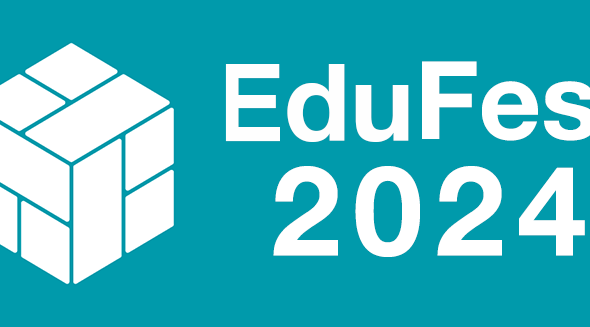When we talk about group work (also commonly called teamwork), we sometimes expect that we can just put students together in a group and they will somehow know how to work together. However, working effectively in a group is a skill, and like any other skill, it requires training, support and practise. This article outlines some core advice about supporting and developing group work, based on my own teaching experience. The following guidance is based around my own research and I will outline a model for effective group work, introducing key considerations around group work and peer assessment.
What is group work

You might consider a group to consist of two or more students and there have been several different terms used, such as peer learning, collaborative learning or cooperative learning. It can be argued that cooperative learning is where students simply divide the work between themselves and collate the final work. However, truly collaborative group work is where students actively work together on activities that rely on each other’s shared input. So group work is where students genuinely collaborate together on shared activities and with shared ownership for all aspects of the group work.
Process not product
It is important that when you consider group work, you focus on the process i.e. how the students work together, rather than the product of what the group produces. When thinking about introducing group work into your teaching, ask yourself if you are actually promoting cooperation, or true collaboration? Group work should therefore be about providing students with the opportunity to work together, share ideas and learn from each other.
Group formation
The literature is mixed when it comes to guidance on how to form groups. Do you form groups based on skills, experience, previous performance? There is some evidence in the literature that suggests lower performing students benefit more from working with higher performers but higher performing students do not gain as much. This is based on academic grade performance however, so it doesn’t necessarily reflect on how students work together.
The other consideration is how many students do you put into a group? I have found that an ideal number is 5-6 in a group and if the class is homogenous based on their course selection, then random selection is fine. If say, they are from mixed courses or cohorts, then random allocation but with a roughly equal mix from each cohort is best. This provides a good mix of backgrounds and experience for the group. This does not need to be rigid however and you can allow for flexibility. I once randomly assigned two students together and one asked to be moved because ‘they’re my partner and I love them, but I can’t work with them!’. So allowing change in certain circumstances is ok.
Doesn’t group work take more time to organise and manage?
 People often say to me that group work sounds great but it takes up too much time to organise (and assess). Setting up group work activities, especially for the first time does take some investment of time and effort, but once it is set up, it will start to save you time whilst offering students a quality learning experience. There are two aspects of group work where you can consider time savings. The first is in time saved for assessment. In one class I had c.240 students and by putting them into groups the products I had to mark (from average groups of 6) was reduced from 240 to about 40 items but the real saving was in peer assessment of the group work process. Students assessed each other’s contribution to the group work and this was via a peer assessment tool, so it was all automated and I simply accessed the final scores. Also, once students are up and running in their groups, they can quickly become self-sufficient, as long as they are supported properly in the early stages.
People often say to me that group work sounds great but it takes up too much time to organise (and assess). Setting up group work activities, especially for the first time does take some investment of time and effort, but once it is set up, it will start to save you time whilst offering students a quality learning experience. There are two aspects of group work where you can consider time savings. The first is in time saved for assessment. In one class I had c.240 students and by putting them into groups the products I had to mark (from average groups of 6) was reduced from 240 to about 40 items but the real saving was in peer assessment of the group work process. Students assessed each other’s contribution to the group work and this was via a peer assessment tool, so it was all automated and I simply accessed the final scores. Also, once students are up and running in their groups, they can quickly become self-sufficient, as long as they are supported properly in the early stages.
Learning how to work in a team
Once you have allocated students to their groups, it is important to set the ground rules for how they will work. Doing this at the start will save time later on not having to deal with small issues that students can learn to take responsibility for themselves. You should provide clear guidance on how their group should work together, providing tips and advice on how to manage meetings together, record progress, deal with conflict management – all the usual aspects of successful team working.
You must be clear about the expectations around the group work but you also need to give students time to learn how to work together effectively. In the past I have used group charters to advise how to work together and check in regularly during class. It is also important to be available to help and mediate if required, as part of the support process. This may feel like you are opening yourself up to endless queries but my experience has been that taking the time at the start to discuss the group work, reduces the number of queries you get later on and students quickly take ownership of the work themselves.
Skills development opportunities
 Group work is a great opportunity for students to develop a range of skills. It is important therefore to emphasise the skills development opportunities for students and this promotes self-motivation. Group work offers the chance to develop leadership skills, organisational and planning skills, communication and negotiation skills, as well as help develop self-confidence. Not all students may want to develop certain skills such as leadership skills, but by emphasising the skills opportunities available, students can focus on what they mostly want to develop for themselves.
Group work is a great opportunity for students to develop a range of skills. It is important therefore to emphasise the skills development opportunities for students and this promotes self-motivation. Group work offers the chance to develop leadership skills, organisational and planning skills, communication and negotiation skills, as well as help develop self-confidence. Not all students may want to develop certain skills such as leadership skills, but by emphasising the skills opportunities available, students can focus on what they mostly want to develop for themselves.
Good communication
Communication is key to good group work as misunderstandings can quickly lead to conflict. As part of the initial orientation/training in how to work in groups, emphasise the need for good communication and provide advice on how to do this, both in person and online. Keeping a record of progress, who agreed to what and any deadlines is helpful so make suggestions about how to do this for the students initially. Students will soon find ways that work best for them, for example you may suggest using the VLE but they may decide to use social media tools. This is fine, as long as they are being inclusive. For example, do they all use the same instant messenger tools to keep in touch?
It may seem obvious to us, but it is also worth providing advice on how to communicate effectively. For example, advise on good etiquette for language, particularly if English is a second language, and to avoid any misinterpretation of messages, avoid colloquialisms. Even pointers about managing their work online, such as naming their files appropriately to avoid duplications and taking turns in group roles each week is helpful.
Tutor involvement
 It may seem obvious but the literature has shown that greater tutor input can result in better group work. However, this encourages students to become reliant on you and it takes up more of your time. So you need to find that right balance of providing enough support to be effective, whilst stepping back to save yourself time and allow students to become independent. This will come with experience and taking a bit of time initially to focus on group work orientation, will save a lot of time as the group work activities develop.
It may seem obvious but the literature has shown that greater tutor input can result in better group work. However, this encourages students to become reliant on you and it takes up more of your time. So you need to find that right balance of providing enough support to be effective, whilst stepping back to save yourself time and allow students to become independent. This will come with experience and taking a bit of time initially to focus on group work orientation, will save a lot of time as the group work activities develop.
Setting up whole group channels of communication is helpful to manage your time between groups. Chances are, if one group has a query about their work, others will too. So by posting individual queries that offer a common response, communicate these messages to the whole group through say, a communal discussion board. That way, you only need to answer the question once for all groups. It is worth just noting that you should manage discussion boards effectively so as not to confuse students on where and when to check for new messages. Creating a bland, generic discussion board for all queries will not work.
Assessing group work
A big question often asked is how do we assess group work? If we really want to assess how students worked in a group, we should assess the process, not the product. For the purpose of the course we, as tutors may be obliged to assess the product of the group work. This may be a group report, artifact or other tangible output from the group based on their activities. This is fine, and by marking group assignments rather than individual work, we have already reduced our marking time. However, we want to mark the process of the group work for the benefit of the students i.e. how the students actually worked together as a group, and this can be considered as a component of the final summative assessment.

Students need to take ownership of the group work component and this can be achieved through peer assessment, as they are best placed to assess each other’s contributions, not the tutor. To do this, students need to understand and own the assessment criteria. The best way to do this is to negotiate the criteria with the students from the start. Ask them ‘how would you assess the group work’? By engaging students in this discussion at the start they take ownership of the process and understand it is there responsibility. For example, they may say turning up to meetings, contributing to discussions and meeting deadlines are essential criteria. What does ‘contributing’ mean? They will have this discussion and agree the definitions, and therefore understand and own the criteria themselves. This approach forms the basis of a balanced approach to the assessment of group work.
A model for effective group work
In this blog, I have given an introductory overview of the different aspects of group work that you should consider if you want to promote a positive environment for group work and all the learning benefits it offers. Keep in mind the following key components of the model and this should help foster a positive learning experience, whilst providing real tutor benefits too.
- Group work is about how students work together – focus on the process
- Create effective groups through considered group formation to encourage group engagement
- Provide initial training/orientation about how to work effectively as a group
- Emphasise the skills development opportunities through group work
- Promote good communication practices
- Let the students own the assessment criteria – assess the process
Further reading
Bong, J. and Park, M.S., 2020. Peer assessment of contributions and learning processes in group projects: an analysis of information technology undergraduate students’ performance. Assessment & Evaluation in Higher Education, pp. 1-14.
Boud, D., Cohen, R. and Sampson, J., 2014. Peer learning in higher education: Learning from and with each other. Routledge.
Falchikov, N., 2001. Learning together: Peer tutoring in higher education. Psychology Press.
Freeman, M. and McKenzie, J., 2002. SPARK, a confidential web-based template for self and peer assessment of student teamwork: benefits of evaluating across different subjects. 33(5), pp. 551-569.
Hilliard, J., Kear, K., Donelan, H. and Heaney, C., 2020. Students’ experiences of anxiety in an assessed, online, collaborative project. Computers & Education, 143, p. 103675.
Serrano, D.R., Dea-Ayuela, M.A., Gonzalez-Burgos, E., Serrano-Gil, A. and Lalatsa, A., 2019. Technology-enhanced learning in higher education: How to enhance student engagement through blended learning. European Journal of Education, 54(2), pp. 273-286.
To, J. and Panadero, E., 2019. Peer assessment effects on the self-assessment process of first-year undergraduates. Assessment & Evaluation in Higher Education, 44(6), pp. 920-932.
Written by: Dr Paul Chin, Head of Learning & Teaching, CLT.
If you have any questions, please contact Paul or members of the Assessment & Feedback Team, Abby Osbourne and Kenna Skoric
Respond


